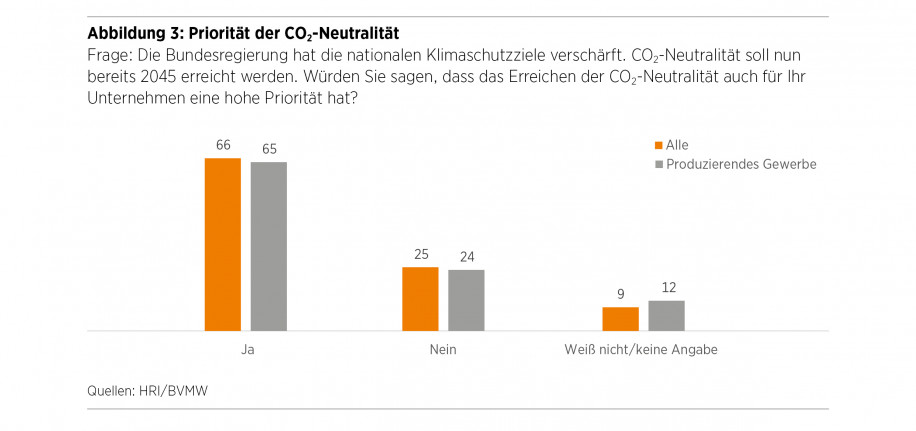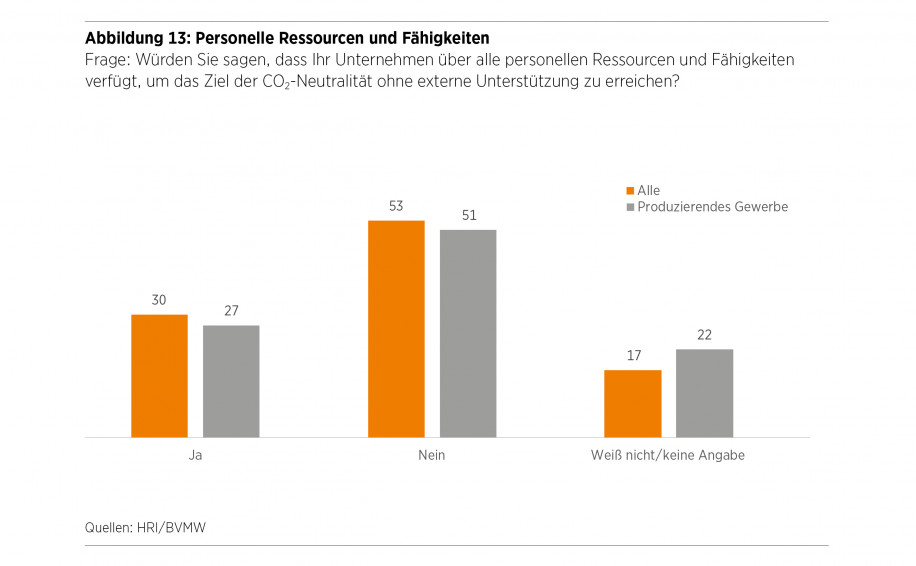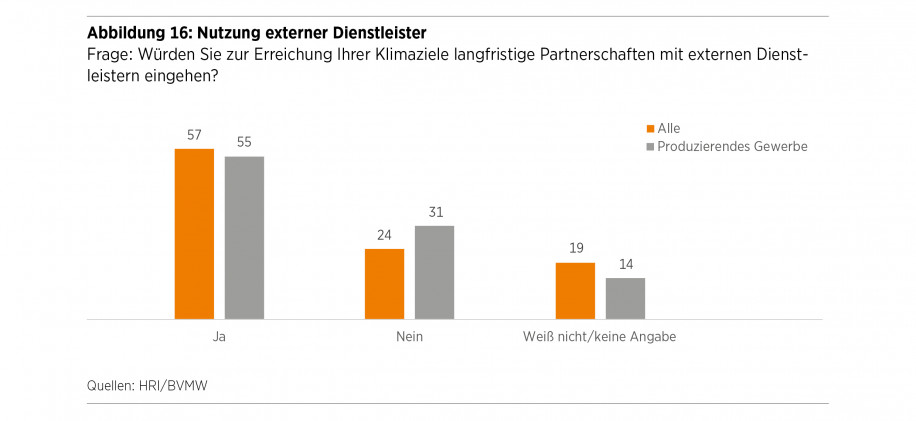New HRI study: German SMEs rely on external service providers to achieve climate targets
- The Handelsblatt Research Institute (HRI), in cooperation with the German Association of Medium-Sized Enterprises (BVMW) and on behalf of ENGIE Deutschland, has published a study on "Corporate Climate Protection Policy: Make it or buy it"
- The results show: The majority of the small and medium-sized enterprises surveyed consider the goal of climate neutrality (rather) as an opportunity and want to push ahead with their own energy modernization
- Significantly more than half of the SMEs consider the long-term partnership with external service providers – particularly in the context of contracting models – to be an effective means of achieving their climate targets
Cologne – Where are German SMEs currently in terms of decarbonization? Which aspects hinder and which aspects accelerate the path to climate neutrality? Answers to these questions can be found in a new study entitled "Corporate Climate Protection Policy: Make it or buy it", which was carried out by the Handelsblatt Research Institute (HRI) in cooperation with the German Association of Medium-Sized Enterprises (BVMW) and commissioned by ENGIE Deutschland. Prof. Dr. Dr. h. c. Bert Rürup, Chief Economist at Handelsblatt and President of HRI, explains: "Companies have an important role to play in the climate-neutral transformation of the economy. When deciding on the appropriate climate neutrality transformation path for them, they are faced with the question of whether they implement the necessary measures on their own – and bear the associated risks themselves – or transfer these processes and risks to an external company and purchase them as a service." Dr. Hans-Jürgen Völz, Chief Economist of the BVMW, adds: "The small and medium-sized enterprises see enormous opportunities in the climate-neutral transformation of the German economy. However, the study also shows how important it is know the right way to do this. Companies have different requirements for government support, depending on their industry affiliation and size. In any case, policymakers would be well advised to make access to funding programs less bureaucratic and to improve the availability of relevant information so that the large number of SMEs in our country can fully develop their climate protection potential."
The study is the first paper to address the issue in this scope. Their empirical basis is a survey conducted by the HRI in mid-2021 among small and medium-sized enterprises (SMEs). "Climate protection and sustainability have long been part of the political agenda. But the vehemence and speed with which the implementation of such measures is now demanded by the business community and industry poses great challenges for many companies. Our study is the first to show the status quo in SMEs, the backbone of the German economy, and provides important impetus for the future," says Manfred Schmitz, CEO of ENGIE Deutschland.
SMEs advocate contracting as a means of climate protection policy
The key findings of the study are: Two-thirds of the companies surveyed by the HRI (66 percent) attach high priority to achieving CO2 neutrality and consider this goal (rather) to be an opportunity (63 percent). Accordingly, they would like to actively tackle the energy modernization of production processes and buildings; almost three quarters (72 percent) want to become climate neutral by 2030. Therefore, significantly more than half of the SMEs (57 percent) are open to a long-term partnership with external service providers. According to the study, many companies (53 percent) lack human and technological expertise in energy supply and energy efficiency. Furthermore, according to their own data (70 percent), their knowledge of the public funding opportunities for corporate climate protection measures is insufficient. SMEs therefore advocate contracting models in order to achieve the ambitious climate targets. They see the decisive advantage in shifting cost and profit risks to the service provider.
Dr. Jörg Lichter, Head of the Study at HRI, summarizes: "Against the background of our study results, there are good arguments in favor of giving contracting a greater space than has been the case, in order to exploit in particular the major climate protection potential present in the small and medium-sized enterprises quickly and comprehensively." As partners, service providers such as ENGIE Deutschland on hand here with the necessary expertise, as Manfred Schmitz emphasizes: "As an energy efficiency expert and energy service provider, we have been dealing with the optimal interaction of technology and energy in complex properties and production sites for a long time. With future-oriented solutions, we have been supporting our customers reliably on their path to climate neutrality for many years, for example with contracting models. Our customers benefit from long-term planning security – and together we make a contribution to climate protection."
The complete study is now available for download on the website of ENGIE Deutschland:
engie-deutschland.de/de/umfrage-klimaschutzpolitik
ENGIE Deutschland GmbH


